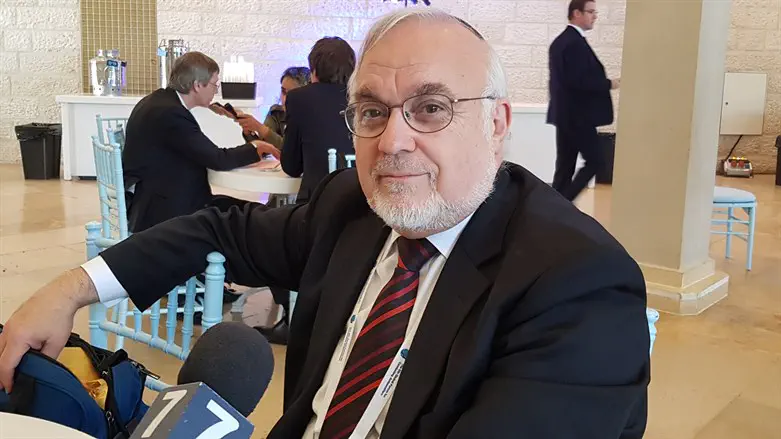
A US delegation on religious freedom said on Monday it cut short its visit to Saudi Arabia after one of its members was asked to remove his kippah, AFP reported.
The United States Commission on International Religious Freedom (USCIRF) said its delegation was near Riyadh visiting Diriyah, a historic town that is a UNESCO World Heritage Site, when the commission's chair, Rabbi Abraham Cooper, "refused their requests that he remove his religious head covering."
"No one should be denied access to a heritage site, especially one intended to highlight unity and progress, simply for existing as a Jew," Rabbi Cooper said in a statement.
The USCIRF said Rabbi Cooper and its vice chair, Reverend Frederick Davie, were invited to tour the site last Tuesday as part of their official visit when, after several delays to the tour, officials requested that Rabbi Cooper remove his kippah "while at the site and anytime he was to be in public, even though the Saudi Ministry of Foreign Affairs had approved the site visit."
Rabbi Cooper said that Saudi Arabia "is in the midst of encouraging change under its 2030 Vision" but added, "However, especially in a time of raging antisemitism, being asked to remove my kippah made it impossible for us from USCIRF to continue our visit."
The USCIRF said it was particularly regrettable it happened to the representative of "an American government agency that promotes religious freedom."
The commission is a US government advisory body mandated by the US Congress.
The Saudi embassy in Washington did not immediately respond to AFP request for comment.
The incident comes against a backdrop of tensions between Saudi Arabia and Israel over the war in Gaza. While Saudi Arabia and Israel do not have ties, the US has been working on promoting a normalization agreement.
Israel and Saudi Arabia appeared to be on track towards normalization before Hamas’ October 7 attack against Israel and the war in Gaza which followed.
Shortly after the start of the war in Gaza, sources told Reuters that Saudi Arabia is putting the US-backed plans to normalize ties with Israel on ice.
Saudi Foreign Minister, Prince Faisal bin Farhan, later said that he believes talks on normalization between Israel and Saudi Arabia will resume immediately after the conclusion of the war in Gaza.
Prince Faisal said in late February that normalization with Israel requires both an end to the fighting in the Gaza Strip as well as the establishment of a Palestinian state.
On Sunday, Saudi King Salman called for halting what he described the “heinous crimes” in the Gaza Strip.

